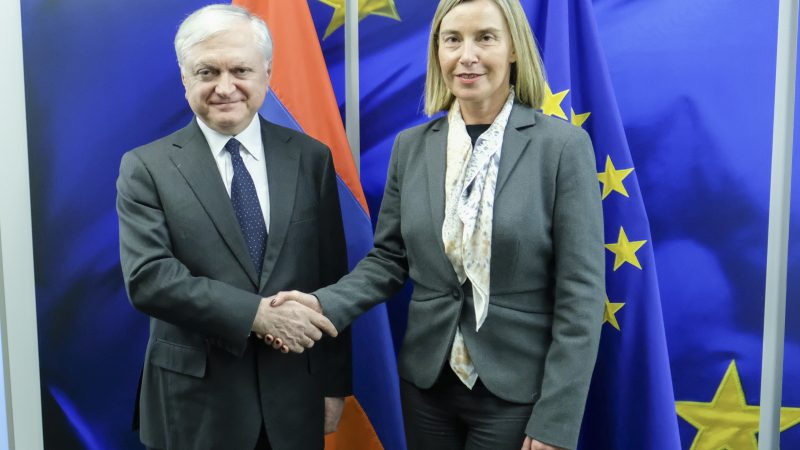Download PDF :


Bulgarian Presidency.eu (21 March 2018)
The information was provided after an official inquiry by the civil society association “Boets”. The data confirm the huge problem that Sofia has with tax frauds and budget draining through companies that have been registered on the name of poor people, mostly from the Roma minority.
However, this is not the entire VAT uncollected by the state. The total value of the non-collected tax for 17 years is just over €8 billion, which represents 17% of the Bulgarian gross domestic product. Much of this money has not been officially written off as uncollectible by the state, but this is likely to happen in the coming years. The confirmation of this fact is that the tax agency is currently working on recovering debt for just €200 million.
“The accumulation of these huge uncollectible sums is impossible without the participation of people from the higher levels of government and without an umbrella on these crimes,” commented the chairman of the association “Boets” Georgi Georgiev. He explains that “the country is governed by a mafia structure that has subordinated the institutions.”
The non-governmental organisation said it will report to the European Commission on the problem of tax fraud and VAT fraud in Bulgaria.
The Bulgarian judicial system is very ineffective in prosecuting tax fraud. In most cases, the prosecutor’s office reaches low level players who have been tempted to provide their personal documents to scammers for small sums. However, with their documents, chains of hollow firms have been registered to extract VAT from the budget.
In mid-February, the Bulgarian court imposed a probationary sentence on a minor citizen in a 10-year case that resulted in a budget loss of €5 million euros. This money will never be collected because the company’s owner does not really own anything.
Tax alerts to the prosecution for tax offenses continue to increase. In 2015, 729 signals were sent, and 939 in 2016. At the same time, the prosecutor’s office opened only 34 cases – nearly 30 times less than the signals filed. This means that criminals are hiding somewhere along the way, which only confirms Bulgaria’s image of the most corrupt state in Europe. At the same time, Chief Prosecutor Sotir Tsatsarov constantly criticises the executive, including the tax authorities, for not submitting enough signals.
10 days ago, the European Commission gave Sofia two months to change its VAT regime. Brussels wants to clarify exactly what assets exactly are subject to value added tax if the property is for private use, even though it is owned by companies.
The European Commission also insists on changes in the advance payment of VAT in fuel trading, as the level playing field between small and large players in the market is undermined.
The signal of “Boets” to Brussels for the Bulgarian tax chaos has every chance to be dealt with very seriously. In October 2017, the European Commission announced the most serious reform of VAT registration and payment. The institution has announced that its initiative aims to prevent tax fraud in the European Union, estimated at €50 billion per year.
One third of the frauds are cross-border and it is suspected that this money could be used by criminal organisations, including for terrorism. With its proposed reform the European Commission believes that the reforms can reduce by 80% the money lost to the budgets of the member states.
In the future, VAT will be charged on cross-border transactions at the point of sale when it is made in another EU country and the local market rate will be applied. Cross-border VAT will be collected in the country where the company is registered or where it is active and will be transferred to the countries where the purchase of the good or service was made. In the beginning, only transactions with goods will be taxed.
It is envisaged to create a single online portal for business declarations and convenient payments according to the country’s own rules. Final VAT is always payable to the country of the final consumer and to the rate paid in that country.
The proposal of the European Commission is to be approved by the Member States, the European Council and the European Parliament. The European Commission plans to present in 2018 a detailed proposal for rules on how to change the VAT Directive.
http://bulgarianpresidency.eu/tax-authorities-in-bulgaria-have-written-off-e2-9-billion-of-uncollected-vat/
 IRAQ: OIL EXPORTS FOR FEBRUARY EXCEED 95.940 MN BARRELS IN FINAL COUNT
Iraq
21.03.2018
IRAQ: OIL EXPORTS FOR FEBRUARY EXCEED 95.940 MN BARRELS IN FINAL COUNT
Iraq
21.03.2018
 ARMENIA: BALANCING ACT BETWEEN RUSSIA AND EUROPE
The Caucasus and Turkish-Armenian Relations
21.03.2018
ARMENIA: BALANCING ACT BETWEEN RUSSIA AND EUROPE
The Caucasus and Turkish-Armenian Relations
21.03.2018




























